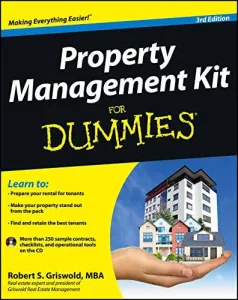What is an Aztech Recognition Agreement? (2025)
February 4, 2025 by Georges Benoliel
Go Back To Previous Page
If you bought a coop in New York City with a mortgage, you have heard of the Aztech Recognition Agreement. People also refer to it as the “Aztec form.” The buyer who applies for a co-op apartment with a mortgage has to produce an Aztec. The Aztecs had no connection to ancient Mexican civilization. It has to do with buying a co-op in New York. We will break it down for you, explaining what it means and how it works. To get a mortgage, the bank requires the Aztech. The co-op purchase application requires the originals. Interestingly, most co-op owners and sometimes brokers are unaware of its meaning. They just put it inside the coop board package without understanding the implications.
What is an Aztech Recognition Agreement? The Aztech Recognition Agreement is a contract between:
- The purchaser of a co-op
- The bank providing the mortgage loan
- The co-op. Corporation

An Aztech remains a contract between those three parties. It states that the bank will have a first lien on the buyer’s shares as collateral for the mortgage. The name comes from the Aztec Document Systems company, which dates back to 1973. Previously, lenders would negotiate directly with building developers to create custom documents for individual shareholders.
Why is an Aztech Recognition Agreement needed?
It’s important to understand that the language in co-op proprietary leases can vary when it comes to securing loans using the shareholder’s lease and shares as collateral. Some proprietary leases permit this, while others require prior consent from the co-op corporation. Additionally, some leases do not address this issue at all.
Before the development and widespread use of the Aztech Recognition Agreement, lenders would negotiate directly with developers and co-op converters to create custom documents that facilitated financing for individual shareholders.
What is an Aztech Recognition Agreement? Why did the parties need an Aztec form?
 The agreement’s goal remains to protect the co-op in the event of a default—any potential buyer who wishes to purchase a co-op in New York purchases shares in the corporation.
The agreement’s goal remains to protect the co-op in the event of a default—any potential buyer who wishes to purchase a co-op in New York purchases shares in the corporation.
If you are buying with a mortgage, you need the Aztec. The document explains that the co-ops have priority over bank payments. If the buyer defaults on their mortgage payments, the lease will not be changed without first notifying the bank.
The form outlines the steps to take in the event of a borrower’s default. It serves as a warning system for a borrower’s financial difficulties. The bank agrees to make payments on behalf of the defaulted shareholder, preventing the co-op from foreclosing.
 The bylaws and the language of proprietary leases vary regarding each shareholder’s ability to obtain a mortgage backed by their shares. An Aztec increases the bank’s ability to enforce its collateral if it tries to foreclose. Lastly, the co-op cannot allow additional financing or cancel the shares/lease without the bank’s approval. In conclusion, the building is granted a priority lien on the equity.
The bylaws and the language of proprietary leases vary regarding each shareholder’s ability to obtain a mortgage backed by their shares. An Aztec increases the bank’s ability to enforce its collateral if it tries to foreclose. Lastly, the co-op cannot allow additional financing or cancel the shares/lease without the bank’s approval. In conclusion, the building is granted a priority lien on the equity.
What are the benefits of the Aztech?
It permits the lender to monitor the shareholder’s timeliness of maintenance payments. In other words, it turns the bank into a guarantor of a shareholder’s maintenance fees.
This agreement stipulates that no further loans, subletting, termination, or surrender of the lease can occur without the lender’s consent. It requires the cooperative (co-op) to accept payments from the bank on behalf of any delinquent shareholder.
If the lease is terminated and a sale takes place, the bank will receive payment from the net proceeds of the sale after all amounts owed to the co-op have been settled. If there are any remaining funds after the co-op and the bank’s loan are fully repaid, those amounts will be distributed to the shareholders.
Additionally, the lender agrees that it cannot transfer the proprietary lease or shares to anyone without the co-op’s approval. Notably, the Aztech Recognition Agreement also specifies that the bank will indemnify the co-op against any liability arising from claims made by the shareholder as a result of the co-op’s actions under the Aztech Agreement.
How can I get the Aztech?
 The banks issue most Aztech Agreements, the terms of which must be mutually agreed upon among the three parties before a loan can be closed. Once released, they become part of the board package.
The banks issue most Aztech Agreements, the terms of which must be mutually agreed upon among the three parties before a loan can be closed. Once released, they become part of the board package.
The co-op will receive payments from the bank on behalf of a defaulting owner.
The bank holds a lien against the shares. In the case of a sale, the bank receives the proceeds first. First, the loan is repaid in full. Then, the owner gets the remaining amount.
 The co-op has a priority lien on shares and leases. The building will be paid for first (before a bank). Banks may attempt to persuade co-ops to accept their version of the agreement.
The co-op has a priority lien on shares and leases. The building will be paid for first (before a bank). Banks may attempt to persuade co-ops to accept their version of the agreement.
If this happens, the co-op’s attorney may agree to minor variations. However, the bank will likely reject any provision that eliminates the language protecting the co-op from liability if the co-op accidentally fails to notify the lender of a default.
At NestApple, we believe the coop building remains financially stable (as opposed to condos with owners in arrears) as long as owners have a mortgage. The Aztech protects the coop. For this reason, many co-ops prefer purchasers to have a mortgage (even a small mortgage) with assets left over rather than an all-cash purchase.

 The agreement’s goal remains to protect the co-op in the event of a default—any potential buyer who wishes to purchase a co-op in New York purchases shares in the corporation.
The agreement’s goal remains to protect the co-op in the event of a default—any potential buyer who wishes to purchase a co-op in New York purchases shares in the corporation. The bylaws and the language of
The bylaws and the language of  The banks issue most Aztech Agreements, the terms of which must be mutually agreed upon among the three parties before a loan can be closed. Once released, they become part of the board package.
The banks issue most Aztech Agreements, the terms of which must be mutually agreed upon among the three parties before a loan can be closed. Once released, they become part of the board package. The co-op has a priority lien on shares and leases. The building will be paid for first (before a bank). Banks may attempt to persuade co-ops to accept their version of the agreement.
The co-op has a priority lien on shares and leases. The building will be paid for first (before a bank). Banks may attempt to persuade co-ops to accept their version of the agreement.

